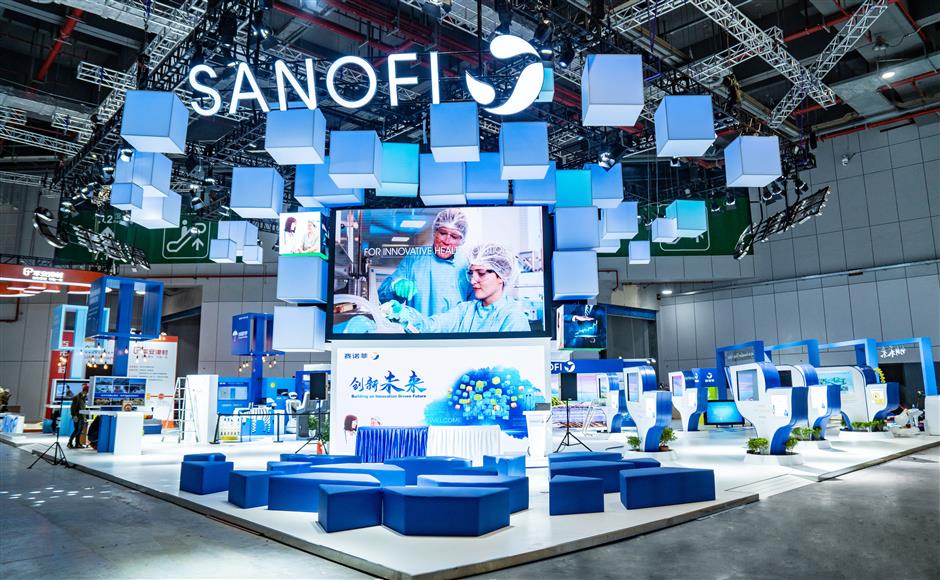May 22, 2025 | Health & Pharma News
In a major development for neurodegenerative disease research, Sanofi, the French pharmaceutical giant, has announced the acquisition of Vigil Neuroscience, a U.S.-based biotech firm specializing in treatments for rare neuroinflammatory conditions. The strategic deal is aimed at accelerating the development of next-generation therapies for Alzheimer’s disease, a growing global health crisis.
💼 A Strategic $1.2 Billion Acquisition
Sanofi’s acquisition of Vigil Neuroscience is reportedly valued at $1.2 billion, including both upfront payments and milestone-based incentives. This move is part of Sanofi’s broader initiative to expand its neuroscience pipeline and strengthen its position in the fight against neurodegenerative disorders.
The deal grants Sanofi access to Vigil’s proprietary microglia-targeting therapies, which are designed to modulate the brain’s immune system and slow the progression of Alzheimer’s. Microglia are specialized immune cells in the brain that have increasingly been recognized as key players in the development of neurological diseases.
🧬 Advancing a New Class of Alzheimer’s Drugs
Vigil’s lead candidate, VGL101, is a monoclonal antibody therapy currently in Phase 2 clinical trials. It targets the TREM2 receptor, a gene linked to increased Alzheimer’s risk when mutated. Early trial data suggest that VGL101 can help restore microglial function and potentially reduce brain inflammation—two crucial goals in treating Alzheimer’s.
With Sanofi’s backing, the development of VGL101 and other pipeline candidates is expected to accelerate, potentially bringing effective new treatments to patients faster.
“Combining our innovative research with Sanofi’s global expertise and resources is a game-changer,” said Ivana Magovčević-Liebisch, CEO of Vigil Neuroscience. “Together, we aim to shift the trajectory of Alzheimer’s treatment and bring real hope to millions affected by this devastating disease.”
🌍 Global Alzheimer’s Burden Fuels Urgency
Alzheimer’s disease currently affects over 55 million people worldwide, a number projected to reach 139 million by 2050, according to the World Health Organization (WHO). With limited treatment options and no definitive cure, pharmaceutical companies are racing to develop disease-modifying therapies.
Sanofi’s acquisition follows a broader industry trend, where big pharma firms are investing heavily in neuroscience startups that offer targeted and personalized approaches to brain health.
🧠 Microglial Modulation: A Promising New Frontier
The science behind Vigil’s therapies lies in the emerging field of microglial modulation. Unlike traditional Alzheimer’s drugs that focus on amyloid or tau proteins, this approach seeks to recalibrate the brain’s immune response—potentially addressing underlying causes rather than just symptoms.
“Targeting microglia opens a novel therapeutic pathway that may help treat not only Alzheimer’s but other neuroinflammatory conditions like ALS and Parkinson’s,” noted Dr. Stéphane Bancel, Sanofi’s Head of R&D. “This acquisition fits seamlessly with our overarching goals in advancing neuroscience research and innovation.”
🔬 What Comes Next?
Following the acquisition, Vigil Neuroscience will operate as a wholly owned subsidiary under Sanofi’s umbrella. The company will retain its research operations in Cambridge, Massachusetts, and continue working with existing partners and regulatory bodies to advance its clinical programs.
Regulatory approval for the acquisition is expected to be completed in Q3 2025.
📈 Market Reactions and Industry Outlook
The announcement generated a wave of optimism across the biotech industry. Analysts predict increased merger and acquisition (M&A) activity in neuroscience, especially in companies focused on immune and gene-based treatments for brain disorders.
“Sanofi is making a bold bet on the future of Alzheimer’s treatment, and this could redefine how we approach neurodegeneration in the coming decade,” said Dr. Aisha Narayan, a healthcare analyst at Morgan Stanley.




